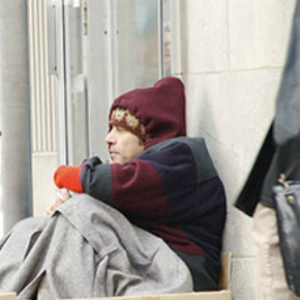Research conducted at Glasgow Caledonian University (GCU) has revealed that austerity policies resulting in cuts to public spending continue to have a negative impact on the disabled, asylum seekers, the low paid and the unemployed, as well as those organisations working to support them.
Organisations across the UK interviewed as part of TransSOL (European paths to transnational solidarity at times of crisis), a €2.5m research project across eight countries, reported that policies to implement austerity measures have led to further distress amongst the poorest and most vulnerable in society, with restricted access to welfare and health services often curtailed by welfare reforms, the bureaucratic complexity of benefit claim forms, but also through the reduction in statutory services.
Researchers found that austerity policies introduced to apparently mitigate the effects of the global financial crisis have instead exacerbated the often difficult circumstances for those in need. The researchers discovered that organisations such as charities and trade unions as well as individual citizens have often provided first-hand support to address the needs of the disabled, asylum seekers, the low paid and unemployed.
Professor Simone Baglioni of the Yunus Centre for Social Business and Health at GCU said: “Despite often being poorly represented in public debates during the global financial crisis and the austerity measures which followed, civil society organisations and many citizens have found themselves having to act as a substitute for public services whilst challenging policies which reduce state provision in addressing the essential needs of the most vulnerable among us.”
The research also reveals that there is widespread concern amongst civil society organisations and citizens’ groups that despite playing a key role in advocating for those who have been further marginalized in UK society as a result of austerity policies, these organisations have themselves come under intense pressure as they attempt to continue their work amidst an increasingly precarious funding environment.
Tom Montgomery, a researcher in the Yunus Centre for Social Business and Health said: “It’s worryingly that for some organisations the need to focus on sustaining their operations within the UK has in a number of cases come at the cost of sustaining or exploring greater collaboration across borders at a time when European solidarity is under pressure from populist and reactionary forces.”
Dr Olga Biosca, a senior lecturer in the Yunus Centre, concluded that the findings should act as a warning sign for those who value solidarity and social cohesion, adding that there are implications for society when vulnerable citizens and the organisations which support them come under ever increasing strain whilst public spending is in retreat and inequalities are widening.

